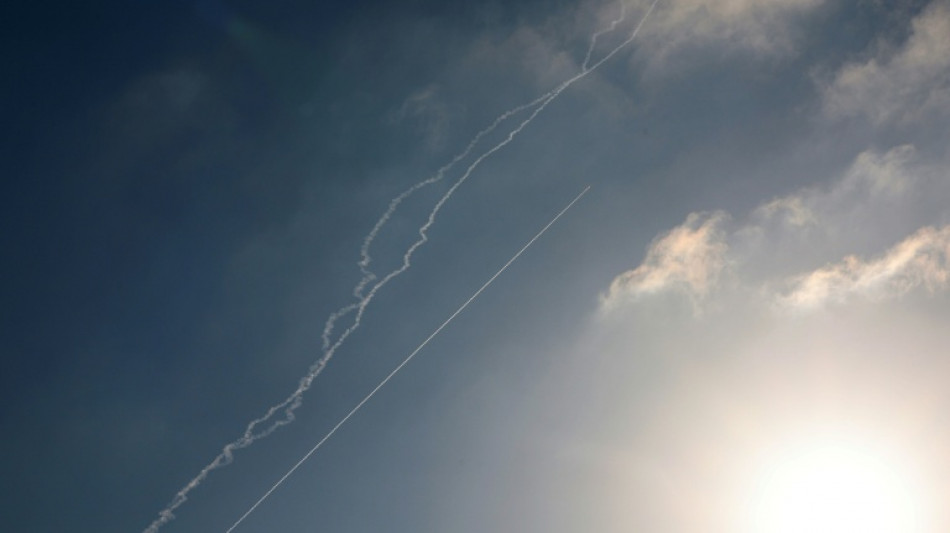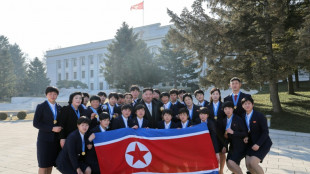

Israel minister says Iran leader 'can no longer exist' after hospital hit
Israel's defence minister warned that Iran's supreme leader "can no longer be allowed to exist" after a hospital was hit in an Iranian missile strike on Thursday, spiking tensions in the week-old war.
As President Donald Trump dangled the prospect of US involvement, Soroka Hospital in the southern city of Beersheba was left in flames by a bombardment that Iran said targeted a military and intelligence base.
Israel, fearing Iran is on the verge of developing a nuclear weapon, launched air strikes against its arch enemy last week, triggering a conflict that has left more than 200 people dead on both sides.
Prime Minister Benjamin Netanyahu said Iran would "pay a heavy price" for the hospital strike, while Defence Minister Israel Katz issued a stark warning for supreme leader Ayatollah Ali Khamenei.
"Khamenei openly declares that he wants Israel destroyed -- he personally gives the order to fire on hospitals," Katz told reporters.
"He considers the destruction of the state of Israel to be a goal. Such a man can no longer be allowed to exist."
Hospital director Shlomi Codish said 40 people were injured at the Soroka, where an evacuated surgical building was hit leaving smoke billowing.
"Several wards were completely demolished and there is extensive damage across the entire hospital with damage to buildings, structures, windows, ceilings across the medical centre," he told journalists at the site.
The latest escalation came on the seventh day of deadly exchanges between the two countries that have plunged the region into a new crisis, 19 months into the Gaza war.
Mohammad Hassan, a Pakistani student at the University of Tehran, described frightening scenes in Iran's capital during the Israeli strikes.
"Those days and nights were very horrifying... hearing sirens, the wailing, the danger of being hit by missiles," he told AFP after returning to Pakistan.
"As one peeped out the window in the night, you could see drones, missiles with fire tails."
- 'I may do it, I may not' -
Khamenei has rejected Trump's demand for an "unconditional surrender", despite the president's claims that "Iran's got a lot of trouble and they want to negotiate".
Trump has left his intentions on joining the conflict deliberately ambiguous, saying Wednesday: "I may do it, I may not do it. I mean, nobody knows what I'm going to do.
"The next week is going to be very big," he added, without further details.
Any US involvement would be expected to involve the bombing of a crucial underground Iranian nuclear facility in Fordo, using specially developed bunker-busting bombs.
The White House said Trump would receive an intelligence briefing on Thursday, a US holiday. Top US diplomat Marco Rubio is set meet his British counterpart for talks expected to focus on the conflict.
"I have ideas as to what to do, but I haven't made a final (decision)," Trump said. "I like to make the final decision one second before it's due, because things change. Especially with war."
The Wall Street Journal reported that Trump had told aides on Tuesday he had approved attack plans but was holding off to see if Iran would give up its nuclear programme.
The US president had favoured a diplomatic route to end Iran's nuclear programme, seeking a deal to replace the 2015 agreement he tore up in his first term.
But since Israel unleashed the campaign against Iran last week, Trump has stood behind the key US ally.
- Nuclear sites -
On Thursday morning, Israel said it had carried out dozens of fresh raids on Iranian targets overnight, including the partially built Arak nuclear reactor and a uranium enrichment facility in Natanz.
The Israeli military said the Arak site in central Iran had been hit "to prevent the reactor from being restored and used for nuclear weapons development".
There was a "near-total national internet blackout" in Iran on Wednesday, a London-based watchdog said, with Iran's Fars news agency confirming tighter internet restrictions after initial curbs imposed last week.
The military campaign has sparked calls for a return to diplomacy.
Russian President Vladimir Putin said Thursday that a deal to guarantee both Israel's security and Iran's desire for a civilian nuclear programme was possible.
"I believe it would be good for all of us together to look for ways to stop the fighting and seek ways for the participants in the conflict to find an agreement," he told foreign journalists at a televised event.
He said Iran had not asked Russia for military help.
- Daily barrages -
An Israeli military official, who asked not to be named, said Wednesday that Iran had fired around 400 ballistic missiles and 1,000 drones since the conflict began on Friday.
Iran said Sunday that Israeli strikes had killed at least 224 people, including military commanders, nuclear scientists and civilians.
Iran had been enriching uranium to 60 percent -- far above the 3.67-percent limit set by the 2015 deal, but still short of the 90 percent needed for a nuclear warhead.
Israel has maintained ambiguity on its own arsenal, but the Stockholm International Peace Research Institute says it has 90 nuclear warheads.
burs-sah-adp/th/kir
W.Herrera--GBA



